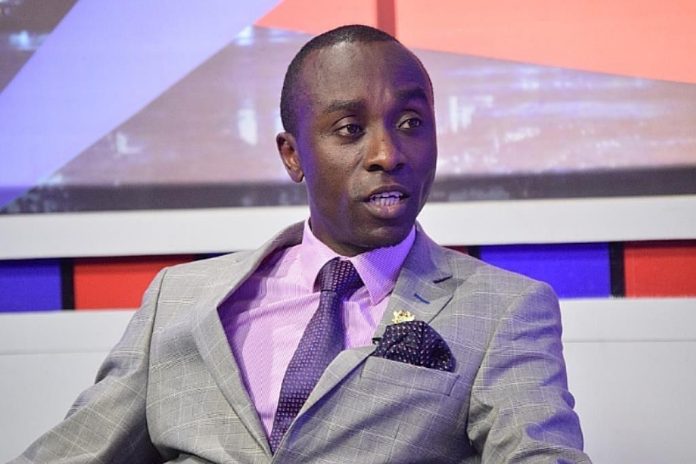The Deputy national communications director of the governing New Patriotic Party (NPP), Ernest Owusu Bempah, has responded to a comment made by the World Bank country director, Pierre Frank Laporte on the current state of the economy.
Laporte said the energy sector is costing the government and unless critical reforms are taken, it will continue to be a drain on the economy.
According to Bempah, the situation was as a result of bad governance in the John Mahama administration and confirmed by the World Bank boss
“The energy sector is saddled with huge avoidable debt occasioned by this bad power purchase agreement by the former energy sector ministry under John Mahama,” Bempah told the media in Accra.
“The NDC created a self-artificial power crises to allegedly pocket millions of cedis, and this made them sign these dubious power purchase agreements that have created so much mess for the current government to bear all these costs,” he added.
“The NDC signed an agreement with Eni which produces and supply gas… and this has accrued so much. The country has started paying also for annual excess gas capacity charges of between US$550 million and US$850 million every year due to these contracts that the previous government entered into…,” he said.
But for those bad debts, he said, the country would have had in excess of about US$ 7 billion that will save Ghana from seeking an IMF bailout.
“Somebody has run the entire economy, the energy sector into take-or-pay and we are paying a huge debt while we need this billions of dollars to turn around the economy,” Bempah said.
Recently, the World Bank boss said unreasonable energy sector agreement forced Ghana to seek IMF bailout.
“There are leakages currently, the level of exemptions of taxes are high… the energy sector is costing government today and unless critical reforms are happening in this sectors, it will continue to be a burden and there are solutions,” he noted.
Ghana is currently paying over GHS12 billion for power not used as a result of the cost of pay-or-take contracts.
The Finance Ministry has so far paid over GHC12 billion as the cost of excess energy capacity charges inherited since 2017 just to keep the lights on. This huge amount was paid for electricity that the country did not use (excess capacity) but had to be paid anyway due to the nature of power contracts signed during the era of the past government.
Laporte speaking in an interview with Accra-based TV3, pointed out those losses in the energy sector are compounding the challenges.
Energy Sector Reform Programme (ESRP)
Ghana has an installed capacity of about 5,000 megawatts and dependable capacity of about 4,700MW with all time high peak demand of 2,700MW. This means since 2017, Ghana has had to look for money to pay about 600MW of excess capacity that was never used.
To address this inimical issue, government boldly and innovatively crafted the Energy Sector Reform Programme (ESRP) to effectively deal with all key issues in the energy sector.
Under ESRP, the government is renegotiating with IPPs to convert purchase agreements from Take-or-Pay to Take-and Pay to put an end to the payment of excess capacity that keeps adding to Ghana’s debt stock.
Specifically, government paid US$520m (GHC2.7 billion) energy sector debt in 2018; US$604 m (GH¢3.14 billion), 2019, US$1billion (GHC5.2 billion) payment in 2019 and now paying over $1billion.
The costs to government would increase over time due to an accumulated total of over $12.5 billion by 2023 if business as usual in the energy sector continues.
Due to the expensive power purchase agreements that included Pay-or-Take between 2010 and 2016, electricity tariff was increased.
Source: Daily Mail GH





